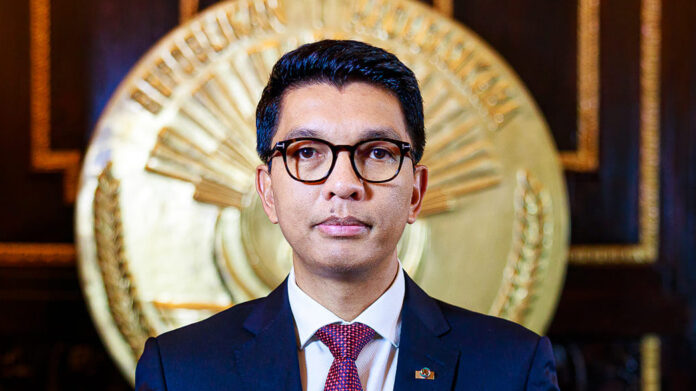Unstable Island, Connected Generation, Regime in Freefall: Gen Z Forces Rajoelina Out
Madagascar’s President Andry Rajoelina fled the island on the night of October 12, 2025, exfiltrated by a French military aircraft to Réunion, then Dubai. A hasty departure, symptomatic of the cyclical collapse of Madagascar’s postcolonial regimes. Under the pressure of a hyper-connected and disillusioned youth operating under the banner of “Gen Z Madagascar,” the regime crumbled within days. Amid a predictable atmosphere of disorder, the military, true to historical form, stepped in to fill the institutional void.
Yet Another Rushed Exit
This is neither the first nor the last time a Malagasy president has slipped away under cover of night. Rajoelina promised order—he leaves behind chaos. Ironically, the very man who benefitted from a military-backed coup in 2009 has now been ousted under a near-identical tactical setup. Images of soldiers joining protesters in the streets of Antananarivo revive the memory of a chronic instability no string of promises has ever resolved.
It all began with glowing smartphone processions. Young people, weary of constant water and power outages, took to the streets. A revolt modern in its form, yet depressingly repetitive in its roots. This island nation, rich in resources, is suffocating under the weight of poverty. Corruption is endemic; institutional order, purely ornamental.
The Illusion of Growth and the Refusal to Be Humiliated
The regime boasted a 4.2% growth rate in 2024. Growth for whom? Certainly not the youth, whose median age is 20 and whose future is a barren wasteland. This is not an episodic crisis—it is the chronic condition of Malagasy politics: illegitimate power, cyclical revolts, complicit international actors.
A French military evacuation? Just another symbol. The former colonizer remains the silent regulator of inconvenient presidential departures. Why was a French military plane pre-positioned in Sainte-Marie? The official silence from Paris is deafening. As always, France knows, France acts—but says nothing.
The Military: Eternal Referees?
Malagasy armed forces refused to open fire, called for unity, and stepped in. Admirable, perhaps. But also a sad reflection of a political class incapable of managing the disorder it breeds. The military, accustomed to velvet coups, now props up a façade of stability—until the next Rajoelina comes along.
The political bond has broken, the Constitution is now just a rhetorical tool for fleeing leaders. By evoking an “assassination attempt,” Rajoelina defaults to a familiar playbook: escape wrapped in legalism, without confronting his failed leadership.
Gen Z: Catalyst or Just a Symptom?
This uprising, hailed as new, is old in essence: the people rise, the military arbitrates, the West observes, and institutions collapse. While the “Gen Z” movement has brought unprecedented energy—without leaders or program, but globally aware—it remains vulnerable. A leaderless, structureless protest risks being swallowed by the old oligarchic reflexes.
The political crisis in Madagascar is not merely the fall of one man—it is the structural failure of a state that never became truly national. As political scientist Lahiniriko aptly notes: the state is seen as external, never integrated, always imposed.
A Never-Ending Cycle
As long as Madagascar’s political system continues to offer promises instead of reforms, repression instead of reconstruction, revolt will always return. The political crisis in Madagascar is structural, chronic, and unsolvable without ethical and institutional rearmament. But who, at this point, still believes that’s possible?



